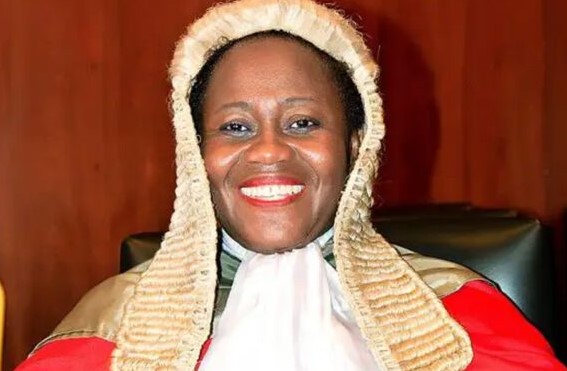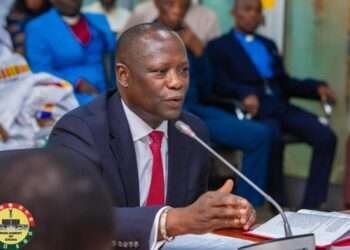Suspended Chief Justice of Ghana, Justice Gertrude Araba Esaaba Sackey Torkornoo, has filed an interlocutory application at the Supreme Court, seeking to restrain a six-member committee constituted by President John Dramani Mahama to investigate petitions calling for her removal from office.
The legal move comes amid mounting legal and political controversy over her suspension and the legitimacy of the processes activated to determine her possible impeachment.
In documents submitted to the country’s highest court, Justice Torkornoo requests an immediate halt to all proceedings of the said committee until the Supreme Court makes a final determination on the substantive legal questions surrounding her suspension.
Her application, filed by the law firm Dame and Partners, seeks to challenge not only the authority of the committee but also the legitimacy of her suspension under Article 146(10) of the 1992 Constitution.
At the heart of the suit is a prayer to the court for an injunction to restrain the six-member panel, comprising Supreme Court Justices Gabriel Scott Pwamang and Samuel Kwame Adibu-Asiedu, and three others, from undertaking any inquiry into the petitions filed against her.
The Chief Justice is also requesting the court to specifically disqualify Justices Pwamang and Adibu-Asiedu from chairing or participating in the deliberations of the committee.

In a further bold move, Justice Torkornoo is challenging the very legality of her suspension. Her suit demands that the Supreme Court suspend the operation of the suspension warrant issued by President Mahama, pending the final outcome of the case.
Her legal team argues that the manner in which the warrant was issued raises serious constitutional concerns that warrant immediate judicial scrutiny.
Battles of Dismissals
This legal development follows closely on the heels of a significant ruling delivered earlier today by the Supreme Court, which dismissed a related case filed by private citizen Theodore Kofi Atta-Quartey.
The suit by Atta-Quartey had sought to challenge the process leading to the Chief Justice’s suspension and to forestall her possible removal. In a 4–1 majority decision, the apex court declared the application unmeritorious, dismissing it on Wednesday, May 21.
That dismissal marked the second time in a single day that the Supreme Court ruled in favour of upholding the current process surrounding Justice Torkornoo’s suspension.
In an earlier ruling, also by a 4–1 majority, the Court dismissed a suit filed by the Centre for Citizenship, Constitutional and Electoral Systems (CenCES).
The civil society organization had sought to invalidate the President’s suspension of the Chief Justice and to stop the committee set up to investigate the removal petitions from continuing its work.
In that case, CenCES contended that President Mahama’s action was constitutionally flawed and procedurally improper. They asked the Court to strike down both the suspension and the committee’s ongoing work.
However, the Court upheld the President’s powers under Article 146, ruling that there had been no breach of constitutional procedure in the establishment of the committee or the suspension of the Chief Justice.

The Supreme Court panel in both cases comprised Justices Paul Baffoe-Bonnie, Issifu Omoro Tanko Amadu, Yonny Kulendi, Henry Anthony Kwofie, and Yaw Asare Darko.
Justice Asare Darko was the lone dissenter in both rulings, underscoring the existence of some judicial unease with the process, even if only in a minority view.
Justice Gertrude Torkornoo’s application now introduces a new dimension to what is shaping up to be a defining legal and constitutional episode in Ghana’s democratic journey.
With a sitting Chief Justice challenging a presidential decision in court and seeking to block a statutory investigative process, the case presents an extraordinary test of the balance of power among the executive, the judiciary, and constitutional accountability mechanisms.
Should the Court grant the injunction, it would temporarily freeze all activities of the committee and halt the removal process until the final judgment is delivered.
If it declines, the President’s committee will be free to proceed with its work, potentially bringing the country closer to the first-ever removal of a sitting Chief Justice in its history.




















